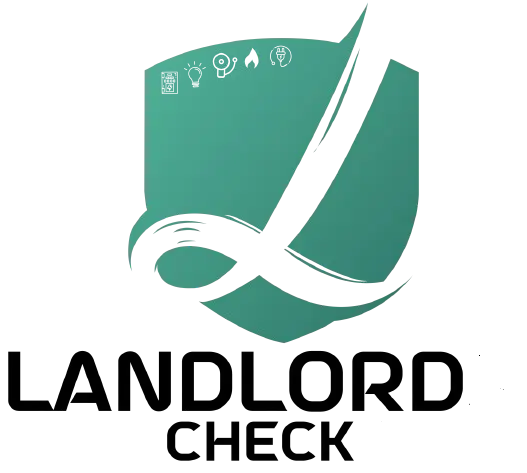Landlords are legally obligated to ensure their tenants’ safety, even if there is still no requirement for an electrical safety report and landlord electrical safety certificate. This indicates that they have a legal obligation to assure the safety of any delivered electrical equipment as well as the electrical system, including wiring, circuits, and consumer units. It is advised that landlords have the electrics routinely tested by a skilled electrician to safeguard both themselves from major financial risk and the renters from electrical fire or shock.
The government announced the eagerly awaited implementation of required electrical safety checks for private landlords in January 2020. The Electrical Safety Standards in the Private Rented Sector (England) Regulations 2020 went into effect on April 1, 2020. Every five years or at the beginning of each new lease, whichever comes first, the examination should be performed in case the previous renter harmed the wiring. All brand-new tenancies must have an EICR as of July 2020. This rule will be in effect for all new and old tenancies as of April 1, 2021. The regulations went into effect formally on April 1, 2020. From July 1, 2020, they were applicable to all new tenancies in England.
What do the regulations entail in terms of landlords?
Landlord responsibilities are outlined in the required electrical inspection legislation. In England, all private landowners are obligated to:
- During the time the residential property is occupied under a tenancy, make sure the electrical safety regulations are met.
- Make that a qualified person regularly inspects and tests each electrical installation in the residential building (normal intervals are every five years unless a report from an inspection and test specifies sooner).
Landlords are required to complete the legal requirement of EICR following when the inspection and testing are completed:
- Obtain a report from the qualified individual conducting the inspection and test, which will include the results and the date of the subsequent one (EICR)
- Within 28 days following the inspection, deliver a copy of the report to each current tenant occupying the space.
- Within seven days of receiving a request, deliver a copy of the report to the local housing authority.
- Keep a copy of the report and give it to the qualified individual conducting the subsequent inspection and test.
- Provide new tenants with a copy of the most recent report upon request, as well as potential tenants.
What happens during an electrical inspection and test?
A fully qualified and registered engineer should conduct Electrical Installation Condition Reports (EICRs), sometimes known as “periodic inspections.” The inspection’s objectives are to:
- Look for any possible electric shock or fire threats.
- Find any electrical work that is flawed.
- Check for any bonding or earthing issues.
- Identify any electrical equipment or circuit overloads.
Any damage, flaws, or hazardous circumstances will be detailed in an EICR by the engineer. The electrical installation will be labelled as “unsatisfactory,” and corrective action will be needed if the property is considered dangerous.
What occurs if my electrical system is dangerous?
The landlord must make sure that any necessary investigations or corrective work indicated in the report is carried out by a qualified individual if the study indicates that the property is not electrically safe. Starting from the date of the inspection, this work must be completed within 28 days or, if earlier, within the time frame stated in the report.
The competent individual must next provide written verification to the landlord that the work has been completed and that the required legal requirement of EICR has been satisfied. The renter and local authorities must then receive this confirmation and a copy of the original report.
Which tenancy kinds are exempt from the required electrical safety inspections?
The majority of tenancies, including HMOs and regulated tenancies (pre-1989), are subject to these regulations. A few different kinds of tenancies are exempt from the rules. Which are:
- a rental agreement if the landlord is a privately registered social housing provider
- any lease where the tenant stays in residence with the landlord or a family member of the landlord
- a long-term lease or tenancy that allows for the right of occupancy for at least seven years
- housing for students
- hostels, refuges, nursing homes, hospices, medical facilities, and other healthcare structures
Do I require an EICR if my home was rewired?
You should obtain an Electrical Installation Certificate if your home has undergone a complete rewiring (EIC).
As long as they follow the rules, landlords in this situation won’t need to conduct additional investigations or set up an EICR until five years after the EIC has been issued. Tenants and, upon request, the local authorities may receive copies of the EIC from landlords.
Are there any certificates that need to be provided by the seller?
Yes. The seller is required by law to get a “Part P Building Regulation Certificate” to give to the buyer if the electrical wiring of the property has been increased or altered since January 2005. This demonstrates that any new electrical work and any alterations must adhere to standards, or they will be breaking the law. Either the installation electrician, who is registered with one of the government’s programs, must certify the electrical work covered by Part P, or Building Control at the local authority must verify and authorize it. Councils have the authority to compel property owners to remove or modify any work that is in violation of the law.
Only those with the necessary knowledge, expertise, and experience should perform electrical work to prevent harm to themselves and others. Since only landlord electrical safety certificates provided by competent individuals will be accepted by local authorities and letting brokers, landlords must ensure that a certified electrical engineer performs their examination.




